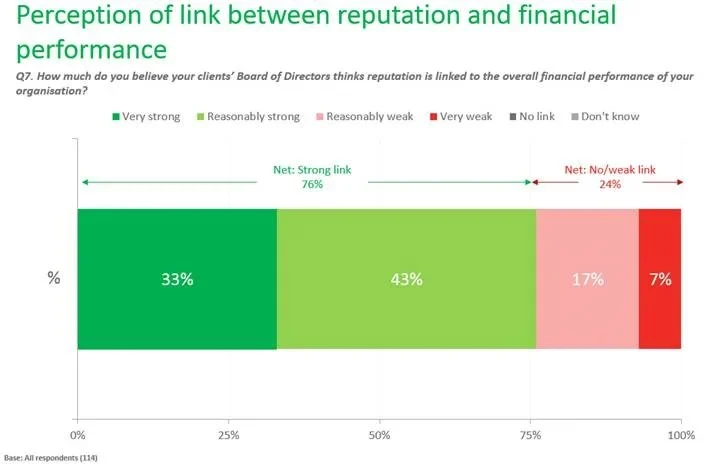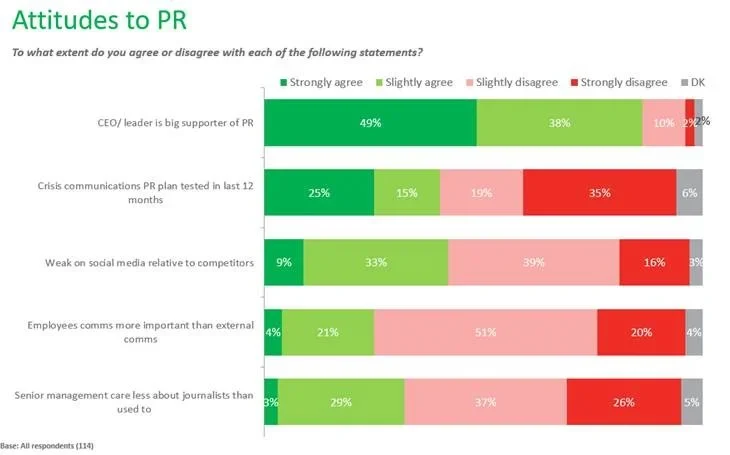In August of this year YouGov carried out research amongst PRCA members as part of the PRCA’s focus on the Economics of Reputation. The findings, presented by YouGov Director of Reputation Research Oliver Rowe at the 2014 PRCA National Conference, shows why reputation is one of a business’ greatest assets.
YouGov interviewed 114 communications professionals from in-house, agency and freelance positions across a range of sectors. The survey looked at a range of issues facing communicators including the crucial question of the link between reputation and financial performance, finding 76% of those in the profession believe their clients’ Board of Directors or their own if they work in-house, think reputation is strongly linked to the overall financial performance of their organisation. 33% say this link is very strong, 43% reasonably strong.

The top three benefits of a good reputation are identified by the sample as ‘ability to retain/recruit the best staff’, ‘positive media coverage’ and ‘stakeholder benefit of the doubt’, in that order, with 83% of communications professionals stating that their teams are still measured by how much positive media coverage they generate.
There was also good news in the perceived value of reputation amongst business leaders with 92% of respondents saying their/their clients’ CEO believes reputation affects the bottom line. When asked to pick all the areas respondents thought a positive reputation could benefit, many different areas including profitability, cost of borrowing and celebrity endorsement were selected by some.
The research shows the indisputable significance of reputation and the myriad benefits respondents feel it offers to organisations of all industries and sizes, both directly and indirectly. Yet by comparison, how the performance of communications teams is measured seems very limited and doesn’t reflect this broader impact. This will always limit wider corporate appreciation of PR’s economic contribution” commented Oliver Rowe.

The survey also asked communications professionals about attitudes to PR which found 87% respondents agreeing that their CEO/leader is a big supporter of PR, with only 12% disagreeing. Those questioned also felt that, perhaps unsurprisingly, external communications are more important than employees communications.
In terms of belief in the importance of how day to day management of corporate reputation impacts a company’s bottom line, the belief amongst professionals is that the biggest support comes from the CEO and the board, while the least comes from the CFO; though 61% of respondents feel the CFO does believe in the impact of reputation on the bottom line a large or reasonable amount, 33% of respondents feel CFO’s believe it affects the bottom line either a small amount or not at all.
Following the launch of the ‘Economics of Reputation’ toolkit in July, the new results are the latest step in the PRCA’s ongoing campaign to aide understanding and stimulate debate around the contribution reputation makes to all organisations. As well as highlighting the key benefits experienced from having an enhanced reputation, the survey has found strong levels of confidence among senior management for PR to manage this reputation for brands and organisations.
For further information about this or other YouGov services please contact James Starkie at james.starkie@yougov.com








